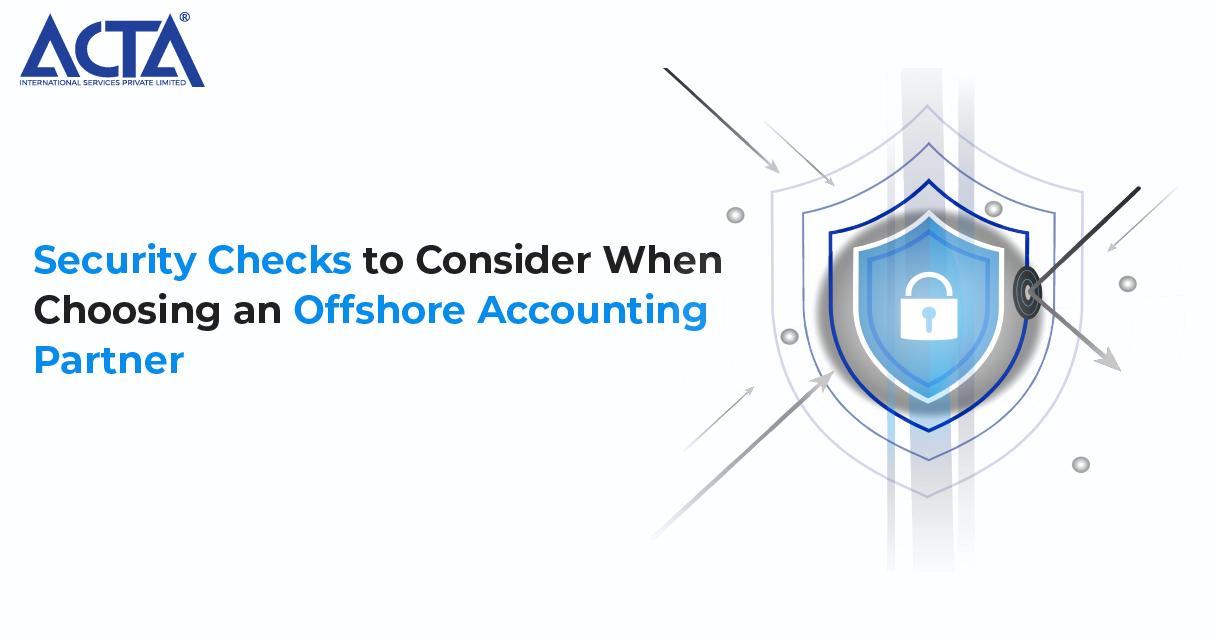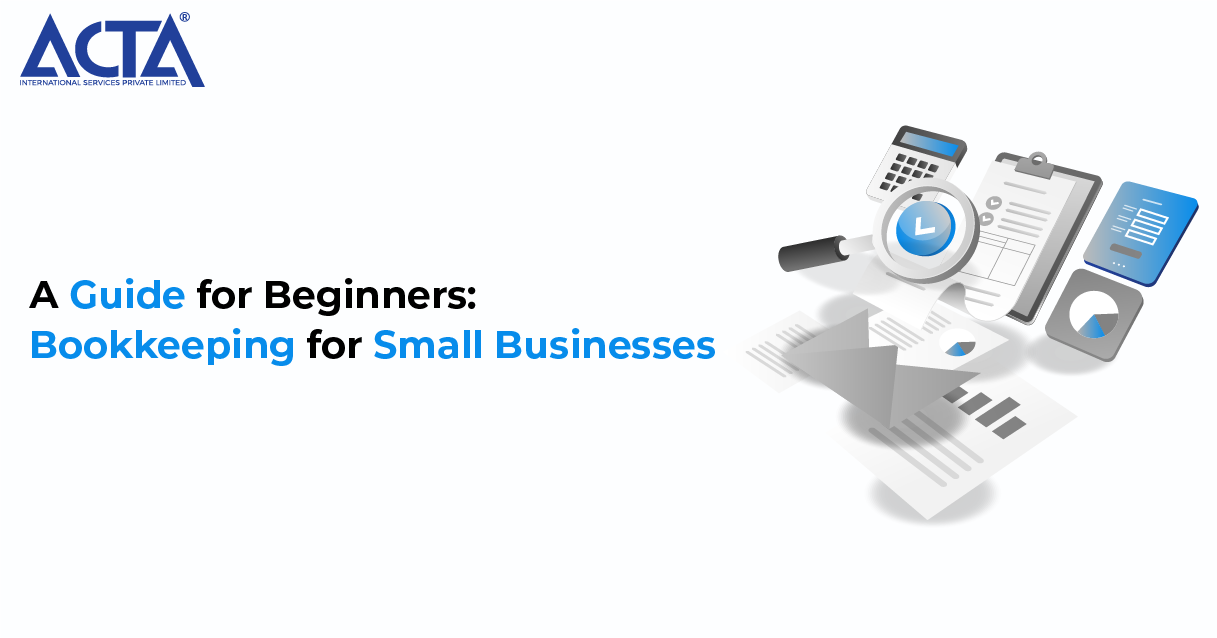
Offshore Accounting Partner Security Checks
Mar 21, 2023
By KARTHICK SUBRAMANIAM
Country Reputation:
The country where an offshore accounting partner is based can significantly impact the level of risk involved in terms of cyber security. Choosing a partner in a country with a reputation for weak data protection laws and a high level of cybercrime can increase the risk of data breaches and cyber-attacks. On the other hand, selecting a partner in a country with a reputation for strong data protection laws and robust cybersecurity measures can provide businesses with greater confidence in their ability to protect sensitive financial information.
When it comes to offshore accounting partners, businesses need to prioritize the security of their financial information. Therefore, it is essential to consider the reputation of the country where the partner is based in terms of cyber security and data protection. Taking this into account during the selection process can help businesses make a more informed decision and mitigate the risk of cyber threats. Ultimately, the reputation of the country plays a crucial role in ensuring the security and confidentiality of financial data, making it a key factor to consider in choosing an offshore accounting partner.
CPA and accounting firms should consider choosing their accounting partner in India due to the country's reputation for high-quality accounting services and expertise in financial reporting. Additionally, India has emerged as a significant player in the offshore accounting industry and has established itself as a hub for outsourcing accounting services.
Furthermore, India has made significant strides in enhancing its cybersecurity measures, particularly in the offshore accounting industry. The country has implemented various laws and regulations to strengthen data protection and prevent cybercrime. Additionally, Indian companies are required to comply with international standards such as ISO 27001 and PCI-DSS to ensure the security and confidentiality of their clients' financial information.
Offshore accounting partners have become increasingly popular among small and mid-sized CPA and accounting firms in the USA due to their cost-effectiveness and efficiency. However, working with offshore accounting partners also involves significant risks, especially when it comes to cybersecurity. In this article, we will discuss some of the common risks associated with offshore accounting partners and provide some solutions to mitigate those risks.
Risks:
- Data security breaches: One of the most significant risks of working with offshore accounting partners is the potential for data security breaches. The transfer of sensitive financial information over the internet can leave it vulnerable to hackers and cybercriminals.
- Lack of control: Working with an offshore accounting partner means that you have limited control over the processes and systems used to manage your financial data. This lack of control can make it difficult to ensure the safety and confidentiality of your information.
- Communication barriers: Offshore accounting partners may be located in different time zones, which can create communication barriers and make it difficult to quickly respond to potential cybersecurity threats.
- Insider threats: An offshore accounting partner's employee may intentionally or unintentionally misuse sensitive financial information or assets, resulting in data breaches or financial losses.
- Lack of monitoring: Due to the distance and the differences in time zones, it can be challenging to monitor and supervise the offshore accounting partner's employees effectively.
- Poor hiring practices: The offshore accounting partner may not have rigorous hiring practices, leading to hiring employees with a history of fraud, theft, or other financial misconduct.
Solutions:
- Encryption and secure communication channels: One of the most effective ways to mitigate the risk of data security breaches is to use encryption technology to protect your sensitive financial data. Ensure that your offshore accounting partner uses secure communication channels such as Virtual Private Networks (VPNs) or Secure File Transfer Protocol (SFTP) for data transfer.
- Data access controls: Ensure that your offshore accounting partner has robust access controls in place to restrict access to sensitive financial data. Only authorized personnel should be granted access, and access should be reviewed and monitored regularly.
- Confidentiality agreements: Sign a comprehensive confidentiality agreement with your offshore accounting partner that outlines their responsibilities to protect your data and prohibits them from sharing or using it for any other purpose without your consent.
- Regular cybersecurity audits: Conduct regular cybersecurity audits of your offshore accounting partner's systems and processes to identify potential vulnerabilities and address them proactively.
- Invest in cybersecurity training: Provide your offshore accounting partner's employees with cybersecurity training to educate them on the latest cybersecurity threats and best practices for protecting sensitive financial data.
- Background checks: Conduct background checks of the offshore accounting partner's employees to identify any past history of fraud, theft, or financial misconduct.
- Regular monitoring: Implement regular monitoring and supervision of the offshore accounting partner's employees to detect any potential insider threats.
- Segregation of duties: Ensure that the offshore accounting partner's employees have segregated duties to prevent one person from having too much control over sensitive financial information or assets.
India is a country with a growing reputation for its expertise in information technology and cybersecurity. Over the years, India has emerged as a preferred destination for outsourcing IT and financial services. In recent times, India has significantly improved its cybersecurity capabilities, with the government introducing various initiatives to enhance cybersecurity in the country.
One example of India's improved cybersecurity is its handling of financial data for the USA. The Big Four accounting firms, Deloitte, PwC, KPMG, and EY, have set up offshore centers in India to perform various accounting and financial services. These centers are subject to stringent data security protocols and are audited regularly to ensure compliance with international standards.
India has also taken steps to establish a robust cybersecurity ecosystem, with the government setting up organizations like the National Cyber Security Coordinator (NCSC) and the National Cyber Coordination Centre (NCCC) to monitor and address cybersecurity threats.
Overall, India's reputation in the field of cybersecurity has grown significantly in recent years, with the country emerging as a hub for IT and financial services. By implementing robust data security protocols and investing in cybersecurity initiatives, India has become a trusted partner for businesses around the world, including the Big Four accounting firms.
FAQs















